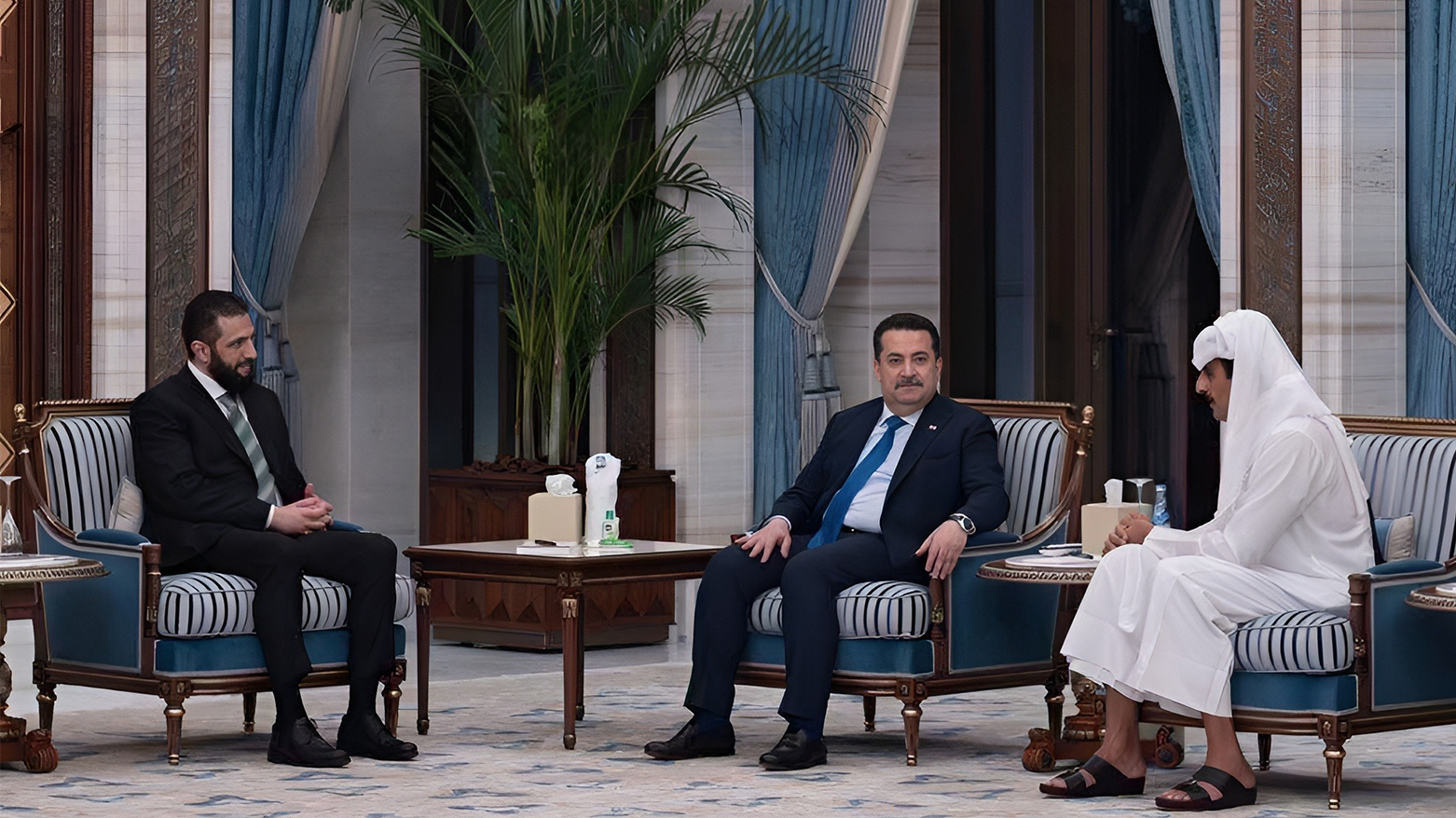Al-Sudani, Al-Sharaa Meeting Sparks Political Reactions in Iraq
Critics point to the arrest warrant against Syria’s interim president, while the Iraqi Prime Minister defends outreach to Damascus as a strategic and inclusive move.

By Kamaran Aziz
ERBIL (Kurdistan24) – Iraqi Prime Minister Mohammed Shia al-Sudani has faced mounting political backlash following his recent meeting with Syrian interim President Ahmed al-Sharaa in Doha—an encounter that has sparked controversy both at home and abroad, particularly within Iraq's Coordination Framework.
The meeting, described by Iraqi state media as a “quick visit” to address regional instability, was held earlier this week and included Qatari Emir Sheikh Tamim bin Hamad Al-Thani. It marked the first direct engagement between Iraqi and Syrian leaders since the toppling of Bashar al-Assad, a longtime ally of Baghdad. During the trilateral discussions, Sudani reportedly called for an inclusive political solution in Syria, emphasizing the protection of all social, religious, and national components. He also urged the Syrian government to take “serious steps to combat” the Islamic State group, according to the Iraqi News Agency (INA).
However, the meeting triggered swift and pointed criticism. Qais al-Khazali, Secretary-General of the Asaib Ahl al-Haq movement and a key figure within the pro-Iran Coordination Framework, warned that hosting Sharaa in Iraq would be “premature” and potentially illegal. In a statement posted on his official X account, al-Khazali acknowledged the strategic importance of Iraq-Syria relations but emphasized that Sharaa’s presence on Iraqi soil could trigger legal consequences.
“There is an active arrest warrant against him,” al-Khazali wrote, referring to Sharaa’s history as a former detainee in Iraq, where he served prison time after the 2003 U.S.-led invasion on charges of belonging to al-Qaeda. “Under Iraq’s legal framework and the principle of separation of powers, adherence to judicial decisions is obligatory for all parties,” he added.
The backlash stems not only from legal sensitivities but also from deeper political rifts. Al-Sudani had earlier invited Sharaa to attend the upcoming Arab League summit set to be hosted in Baghdad this May—an invitation that has further inflamed tensions within Iraq’s fragmented political landscape. Should Sharaa accept, it would mark his first public visit to Iraq since assuming the interim presidency of Syria.
Political analyst Nawal al-Moussawi told Kurdistan24 that al-Sudani’s moves align with Iraq’s national interests in light of ongoing regional shifts. “Syria represents Iraq’s strategic depth, and likewise, Iraq is Syria’s,” she said, underscoring the value of strengthening bilateral relations irrespective of internal political pressures.
Academic and commentator Wael Hazem believes that the criticism directed at al-Sudani is part of an “early electoral smear campaign” ahead of Iraq’s approaching elections. “This is an attempt to score political points,” he noted, asserting that “the Iraqi public broadly supports the state’s strategic direction.”
Meanwhile, Syrian Foreign Minister Asaad al-Shaibani’s recent visit to Baghdad laid the groundwork for increased security and trade cooperation between the two countries. Al-Shaibani reaffirmed his government’s readiness to reinforce collaboration with Iraq in multiple sectors, reflecting a broader recalibration of regional alliances in the post-Assad period.
The complexity of Iraq’s current engagement with Syria is also shaped by its own history of war and insurgency. The scars of the post-2003 era, marked by sectarian conflict, al-Qaeda’s rise, and the Islamic State’s devastation, continue to influence public and political attitudes toward figures like Sharaa.
With the countdown to the May summit underway, and Iraq’s political blocs gearing up for a highly competitive election season, observers expect that scrutiny of al-Sudani’s foreign policy choices will intensify—especially those involving Syria’s volatile transitional leadership.
Kurdistan24's correspondent Saif Ali from Baghdad contributed to this report.
